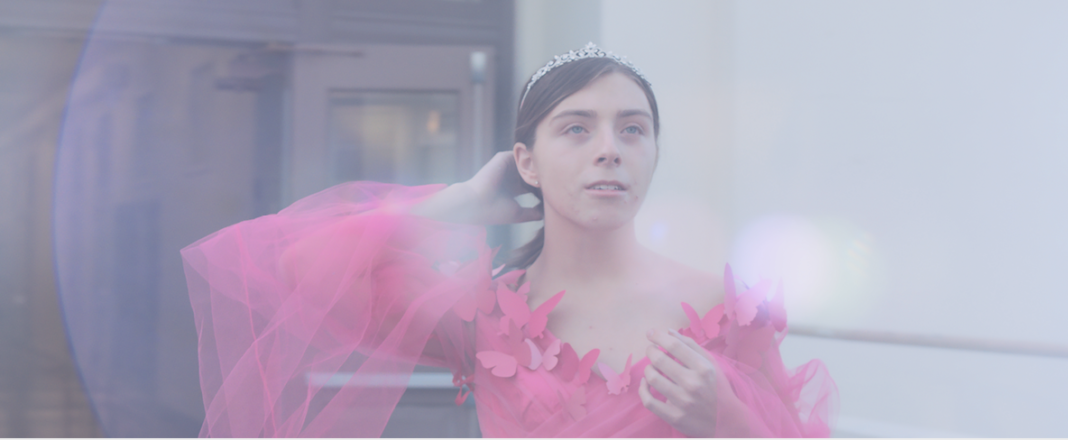Director Ira Storozhenko and Producer Katherine D. May have teamed to produce JULIET, the tale of transgender prejudice set against the backdrop of a high school production of Shakespeare’s ROMEO AND JULIET.
Film And TV Now spoke with the film-making team about their work.
FILM AND TV NOW: Shakespeare wrote characters historically that could be played by both genders. How much of a challenge is it for transgender teenagers to play his characters in schools today?
IRA STOROZHENKO: I truly believe that the situation varies depending on place and country. According to our research which we’ve done during creative preparation for the story, nowadays in modern cities like Los Angeles most schools are very open minded and supportive of kids.
However, the world-wide coverage of the gender topic is still inadequate. There are still very conservative places and even countries where teenagers do not feel safe and have to hide their personality and uniqueness.
The inspiration for our film came from my dear friend and actress Jasmine Alyssa Mosebar who mentioned how hard it was for her to get onto the stage and perform during her transition time. Juliet is not only the story about gender issues to me. I believe that there should be no separation between transgender teenagers and ordinary teenagers.
The whole idea of dividing women by “transgender” and “sis-gender” seems deeply wrong to me. We are all females and we should support each other in the world. Juliet has always been to me the story about a girl who is trying to find her creative voice. I can relate to this story in all ways and I hope all feelings and emotions were transferred through the screen.
FTVN: Was the short based on a particular real-life incident or experience?
IS: Juliet is a very personal project to me. I have had self-identity struggles during my teenage years and all the moments “behind – the – wing” in the school theater are based on my own experience of being bullied and hurt.
In fact, I had been trying to tell this story for years before I was finally able to make it for the screen with the big support from the AFI Conservatory and all mentors who helped me translate my personal feelings into the story.
FTVN: Tell us about your cast.
IS: Our cast is wonderful! Our amazing lead Reise Alexander, who is from Texas, was such a pleasure to collaborate with since the moment we met her. She is so hardworking and so talented, and we wanted to make sure that we represent her own experiences as authentically as possible.
We searched all over the country to find our lead and when we had our first Skype call with Reise back in 2019, we knew right away that she was our Serena. Marc Hills, who plays James, we met at the audition and he just nailed the part from the very first read, and brought so much authenticity to the character.
Trew Mullen who is our Rosa is a very talented young actress from LA with whom we collaborated in the past, and she is a total chameleon, and can play any role you throw at her. Everyone in the cast was so supportive of the message that we wanted to convey with this film and we are very grateful for it. We wish them much success with their careers!
FTVN: Tell us about your production team.
IS: Our production team was also very supportive of the subject matter and everyone worked so hard every single day, from the Line Producer to our incredible PAs.
We also wanted to represent the community not just in front but also behind the camera. Our wonderful consultant Jasmine was with us practically from the very beginning of the script development, and later on set, and we cannot be more grateful. We wouldn’t have done it without her.
FTVN: Where did you shoot and for how long?
IS: We shot in San Pedro, Los Angeles County, over the course of 4 days. Both of our locations, high school and theater, are located in San Pedro. We wanted a location that would seem like it could exist in any part of the country, and that’s the look we were going for and were lucky enough to find the locations that really aligned together in their look and feel.
FTVN: We understand that the short was created through the American Film Institute. How supportive has the organization been for you?
IS: AFI Conservatory creatively supports fellows a lot. In fact, it is like a creative heaven where you are properly guided by the mentors who understand your personality and creative language. As I mentioned before, I don’t think this story would ever exist without AFIC and all the help kindly provided by teachers and mentors.
FTVN: Would you consider expanding the themes of this short into a feature-length idea?
IS: Absolutely. I am working on the feature right now where the theme of the unheard woman is fully embraced in the feature – length story which allows it to be more emotional and powerful.
FTVN: Are there plans to show the film to colleges, schools and universities to highlight the prejudices prevalent in perceptions towards transgender individuals?
IS: We are currently in the film festival process where the movie cannot be screened in public, however, for the future I think it would be very beneficial to screen this short in conservative educational places to support and inspire teenagers. That was one of the biggest goals of the movie – to inspire and encourage teenagers around the world to never be afraid of who they truly are, and always find the way to let their creative voice shine.
FTVN: You began your career, Ira, with a documentary when you were 17. Tell us about the film and what were the key lessons you learned from making it?
IS: Documentary filmmaking is very different from fiction movie filmmaking. Although it does benefit my approach to development and communication, I learned a lot about how to study a character, do research and stay creatively open to all opinions in the team.
Another very important lesson I learned through the years of growing up is that there will be so many voices in the room (and some of them will tell you that you cannot direct, some of them will tell you that you are not enough or your choices are wrong) – you need to follow your gut feeling (you need to do YOU!). It is the only way to be able to find your collaborators and make the project happen.
FTVN: Katherine, you have worked on marketing campaigns for studios. What are the key lessons you have learned from those experiences and how has that helped your development as a film-maker?
KATHERINE D. MAY: I have learned that it is all about the story you want to tell and that before you even make a movie you should really know who your audience is, and why they will be interested in watching it. Your movie is your brand and you should have aligned vision at every step of the process. I also learned that you don’t always need a big budget to be creative. Even with a tiny or no budget, a simple idea executed in a unique, creative way can really make your brand, or film in this case, stand out
What issues and themes would you both respectively like to explore in your future work?
IS: Unheard people and characters who have the courage to go against society and standards. I feel very attracted to characters who must fight in order to be heard. It is very important to me to have an honest conversation with the audience through my work and inspire everyone to be stronger and believe in themselves.
KDM: I really am interested in exploring social issues and women-driven stories of different genres that capture authenticity and uniqueness of women experiences.
FTVN: How has the current global situation affected your development and evolution as film-makers?
IS: We were lucky enough to finish production right before the world went into the lockdown. The biggest lesson we all learned was the ability to finish the movie and move through post – production distantly, considering all new limitations we had to face with.
Katherine is a very strong producer and she did her best to never let me feel the struggle of the BIG change. I can say now that it did not affect the creative side almost at all. Katherine was able to navigate post – production and guide the team in a very professional and supportive way.
FTVN: Finally, what are you most proud of about this short film?
IS: I am very proud of two things: We discovered Reise Alexander – without her input this project would never be itself. And I am also very proud of the visual language of the movie. The credit goes to the creative team who felt the topic and added to the story much more than I could ever imagine.





























